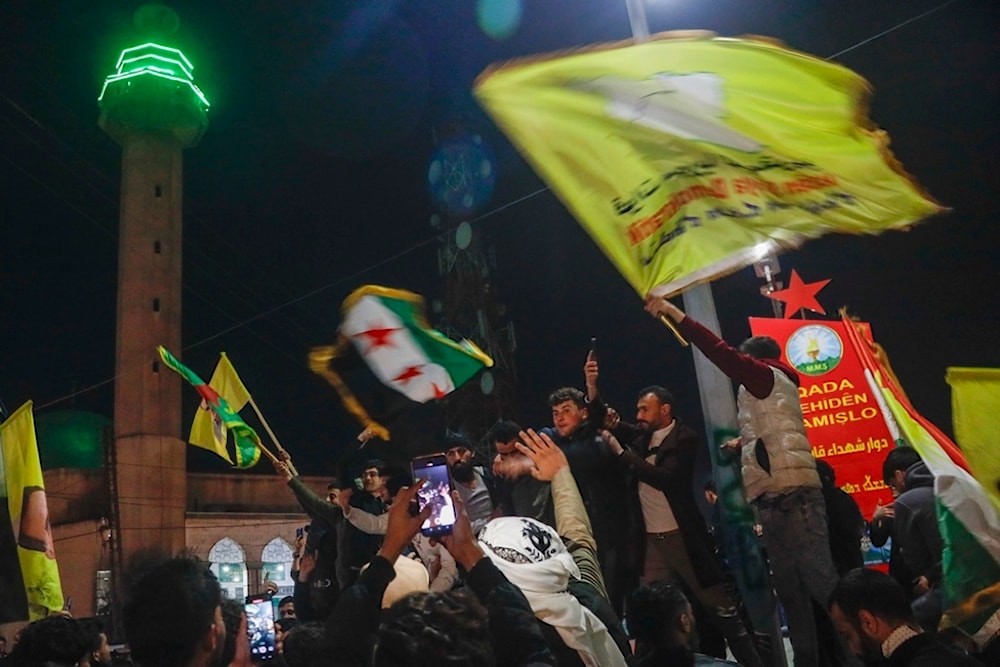Syrian Kurdish Council rejects declaration, warns of renewed autocracy
The Kurdish National Council in Syria says the constitutional declaration "reinforced a centralized system of governance and granted the president broad powers."
-
 Residents celebrate following the signing of a breakthrough deal between Syria's interim government and the SDF, the Kurdish-led authority that controls the country's northeast, in Qamishli, northeastern Syria, late Monday, March 10, 2025 (AP)
Residents celebrate following the signing of a breakthrough deal between Syria's interim government and the SDF, the Kurdish-led authority that controls the country's northeast, in Qamishli, northeastern Syria, late Monday, March 10, 2025 (AP)
The General Secretariat of the Kurdish National Council in Syria has rejected the constitutional declaration signed on Thursday by the interim president, Ahmad al-Sharaa, describing it as “another step toward consolidating unilateral rule and monopolizing authority.”
The council expressed its "surprise and disappointment" with the declaration, arguing that it "falls short of aspirations for building a democratic state that truly reflects Syria’s societal diversity."
It further stressed that this development "requires a responsible stance from all national democratic and nationalist forces to reconsider the declaration in a way that ensures political and ethnic pluralism."
'A tool to entrench status quo'
The Kurdish National Council criticized the declaration’s provision setting the transitional period at five years “without guarantees for fair participation,” warning that this could turn the transition into "a tool to entrench the status quo rather than pave the way for real political transformation." It cautioned that such an approach "deepens the crisis instead of resolving it."
The council also pointed out that the committee responsible for drafting the declaration “does not represent the various political, ethnic, and religious components,” which has “undermined its inclusiveness and national consensus, reinforcing a policy of exclusion and power monopoly.”
Furthermore, it noted that the declaration "ignored Syria’s pluralistic nature and its identity as a multiethnic and multireligious state, failing to guarantee the national and religious rights of its components." Instead, it "imposed a singular national identity in the state's official designation, blatantly excluding others," according to the statement.
The council emphasized that the declaration contravenes the principle of separating religion from the state by maintaining the requirement that the president must adhere to a specific religion, which it argued "violates the principles of equal citizenship that should form the foundation of any democratic system."
Additionally, the council stated that the constitutional declaration "reinforced a centralized system of governance and granted the president broad powers without clear guarantees for the separation of powers or institutional balance," warning that this "raises concerns about the reemergence of authoritarianism in new forms."
According to the Kurdish National Council, the declaration included “additional restrictions on civil and individual liberties” and limited women’s role to “preserving their social status and traditional roles.” It described this as an extension of an oppressive approach that seeks to control and restrict society.
Elsewhere, the council reaffirmed its “commitment to the struggle for a just democratic resolution of the Kurdish issue as the cause of an indigenous people, within a decentralized Syria that guarantees the rights of all its citizens and upholds justice and equality for all.”
Read more: Kurdish-Led admin rejects al-Sharaa constitutional declaration

 3 Min Read
3 Min Read








